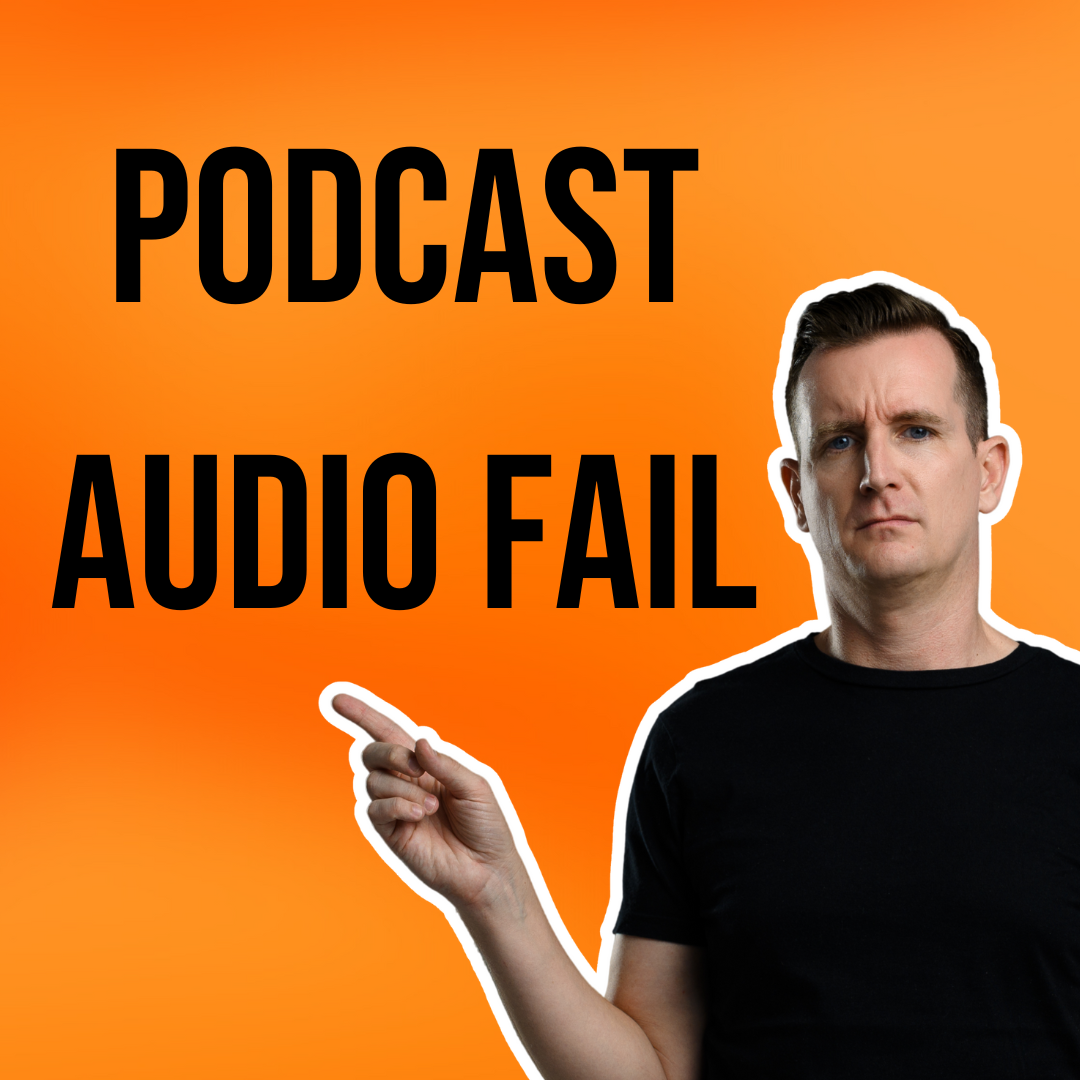This is me, Niall Mackay, founder of Seven Million Bikes Podcasts. I have been helping podcasters all around the world make their shows sound professional and connect better with their listeners. On Smarter Podcasting, I offer a free monthly podcast audit for one podcaster to get honest feedback about their show. In this episode, I spoke with Arin Rockman, host of Rock n Metal Faith, a Christian music podcast from Canada.
Arin’s story reminded me of why many of us start podcasting. It begins with passion, continues with trial and error, and grows through learning and persistence.
Finding His Niche in Rock, Metal, and Faith
When Arin first began, he was just like many of us who simply love a topic and want to share it. He listened to other podcasts and thought, “I could do that.” At first, he wanted to talk about rock music in general. Then he realised how crowded that space was. There were hundreds of podcasts already doing that.
So, he looked deeper at what made his perspective different. That is when he combined his love of rock and metal with his Christian faith. The result was something special. A show where Christian rock and metal artists have a voice.
I loved hearing how clearly he found his focus. I always tell new podcasters to find their niche. It is one of the most powerful ways to stand out. There might be thousands of music podcasts, but only a handful talk about Christian metal. By narrowing his focus, Arin made his show unique.
The Setup and Learning What Works
Like most podcasters, Arin’s setup grew over time. He started with a basic USB microphone and a slow laptop that made editing painful. When he got a work bonus, he invested in a better computer and upgraded his gear.
He experimented with different microphones. He tried a Shure mic but found that it did not fit his needs. The Zeal Sound USB microphone turned out to be better for his quiet recording space. I reminded him that condenser microphones can work well if you record in a quiet room, while dynamic microphones are better for noisier spaces.
The lesson here is simple. You do not need expensive equipment. What matters more is knowing your tools and your recording environment.
Editing and the Power of Simplicity
Arin uses Riverside for recording and editing. He likes it because it allows him to edit both the transcript and the audio easily. He can cut full paragraphs just by removing them in the transcript. That saves him a lot of time.
Editing can be frustrating, especially when you are still learning or your computer is slow. Arin’s story shows how upgrading to a faster machine can make the process smoother and more enjoyable.
Standing Out Among Thousands of Podcasts
I asked Arin what makes his podcast different from the other hundreds of thousands out there. He immediately said it was his niche. That answer made me smile because it is exactly right. His focus on Christian metal makes him one of very few doing it.
He also took a smart step to help people find his show more easily. By adding “The Christian Metal Podcast” as a tagline, he made it more searchable online. This is a small but powerful move. Many people underestimate the value of search-friendly titles.
Arin has also started interviewing artists, even though that was not his original plan. It is another reminder that flexibility can open new opportunities.
Artwork, Show Notes and Consistency
When I looked at Rock n Metal Faith’s artwork, I immediately understood what the show was about. It had guitars, a cross, and bold text. No headphones or microphones, which is refreshing.
However, I did notice something that needed fixing. The word “Faith” had a typo that made it look like “FATTTH.” It is an easy mistake to make but worth correcting because artwork is the first thing people see.
We also spoke about consistency. Arin releases episodes roughly every two weeks with shorter bonus episodes in between. That rhythm is good. But consistency is not just about timing. It is also about structure and design.
When I reviewed his show notes, I could tell he used AI to help write them. There is nothing wrong with that, but it is important to make sure they sound human. AI often starts with “In this episode” or “We discuss,” which can sound generic. I suggested starting with a quote or a strong hook from the episode instead. That way, when someone scrolls through podcast apps, those first lines catch their attention.
What We Found in the Audit
When I listened to Arin’s latest episode, I could hear his passion. But there were some technical problems. The audio was clipping and dropping out. Later, I learned that he had switched microphones. Unfortunately, that change caused the issue.
The main advice here is to always do a short test recording before you start. It takes just a minute but can save hours of work later.
We also spoke about the structure of the episode. The introduction was quite long and started with a giveaway announcement. The problem with that is it only makes sense at the time of release. If someone listens months later, it feels confusing. I recommended keeping the intro timeless and using a dynamic ad instead for time-sensitive messages.
Another simple improvement is to always introduce yourself at the start of every episode. Even loyal listeners might forget, and new listeners are tuning in all the time. A short line like, “Hi, I’m Arin, and I host Rock and Metal Faith, where we explore the world of Christian rock and metal,” helps build a connection instantly.
Talking to One Listener at a Time
Language matters when you are podcasting. I noticed Arin often said “you guys.” It sounds friendly, but most people listen to podcasts alone. I shared a tip I learned from Mark Steadman. Speak as if you are talking to one person. Picture your listener driving to work, sitting on the bus, or washing dishes. When you speak to them directly, the show feels more personal and intimate.
We also spoke about how to mention past episodes without alienating new listeners. If you reference an earlier episode, give a short summary instead of assuming everyone has heard it. A simple line like, “In our last episode, we talked about…” helps everyone stay on track.
My Final Thoughts
Working with Arin reminded me why I love podcasting. It is not about being perfect. It is about learning, growing, and sharing something you care about. Every episode is a step forward.
If you are reading this and would like your own podcast audit, you can apply through my website. I would love to help you improve your show and make it sound even better.


